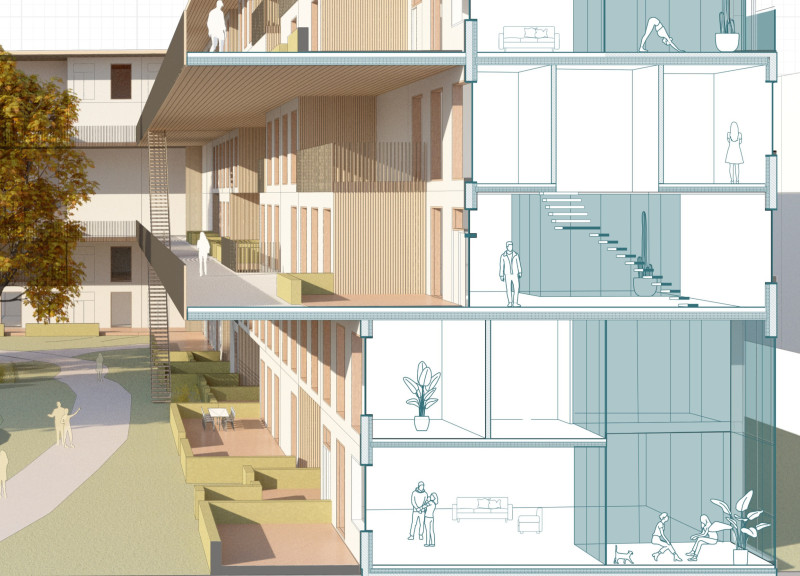5 key facts about this project
Unique Design Approach: Stacked Residential Typology
The design employs a stacked residential typology allowing for vertical expansion in an urban setting where land availability is limited. Each unit includes independent access, creating a sense of autonomy for residents while fostering a connection between them. The arrangement promotes natural light and ventilation throughout the homes, enhancing livability. This architectural strategy not only maximizes usable space but also encourages a supportive community atmosphere among residents.
Integration of Green Spaces
Significantly, the project integrates communal green spaces that serve multiple purposes. Central gardens are designed to provide residents with areas for recreation and relaxation, promoting biodiversity and environmental sustainability. These green areas act as ecological buffers, managing rainwater and supporting local flora and fauna. The incorporation of green roofs further adds to the ecological benefits, improving insulation and reducing the urban heat island effect. Such integrations reflect a conscious effort to harmonize living spaces with the natural environment, setting this project apart from conventional urban housing developments.
Material Selection and Sustainability
The material palette focuses on sustainability, incorporating wood, glass, and steel to create a durable yet inviting residential environment. Wood elements contribute to the aesthetic warmth and ecological footprint of the project. Extensive use of glass facilitates natural light penetration, blurring the boundaries between indoors and outdoors. Steel provides the structural integrity necessary for multi-story dwellings in a compact lot. The selected materials underscore the commitment to sustainable architecture, aligning functional needs with environmental responsibilities.
For a deeper understanding of the architectural plans, sections, and designs that shape this project, readers are encouraged to explore the complete project presentation. Detailed insights into the architectural ideas and methodologies are available for those interested in the nuances that define this remarkable development in urban housing.























